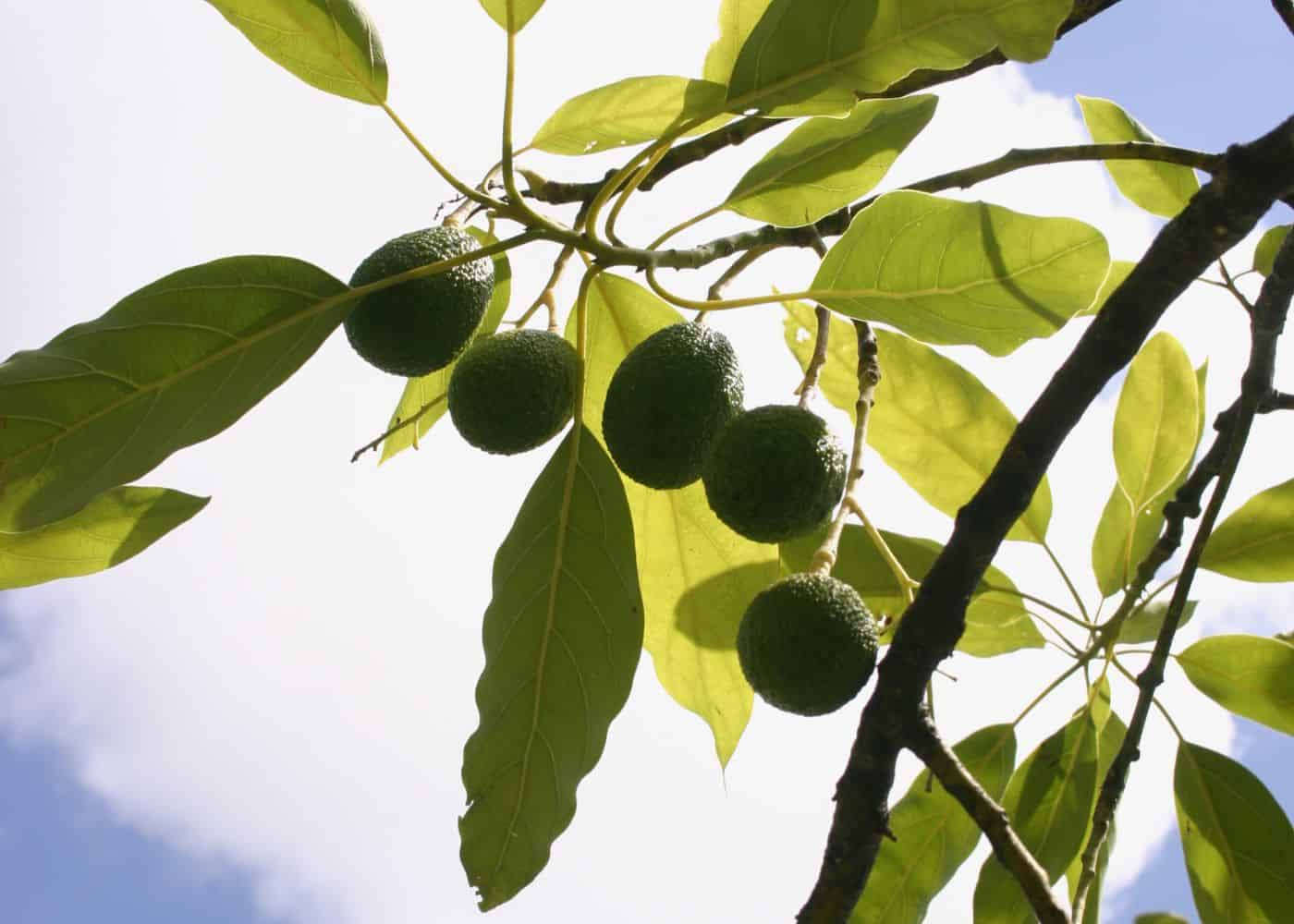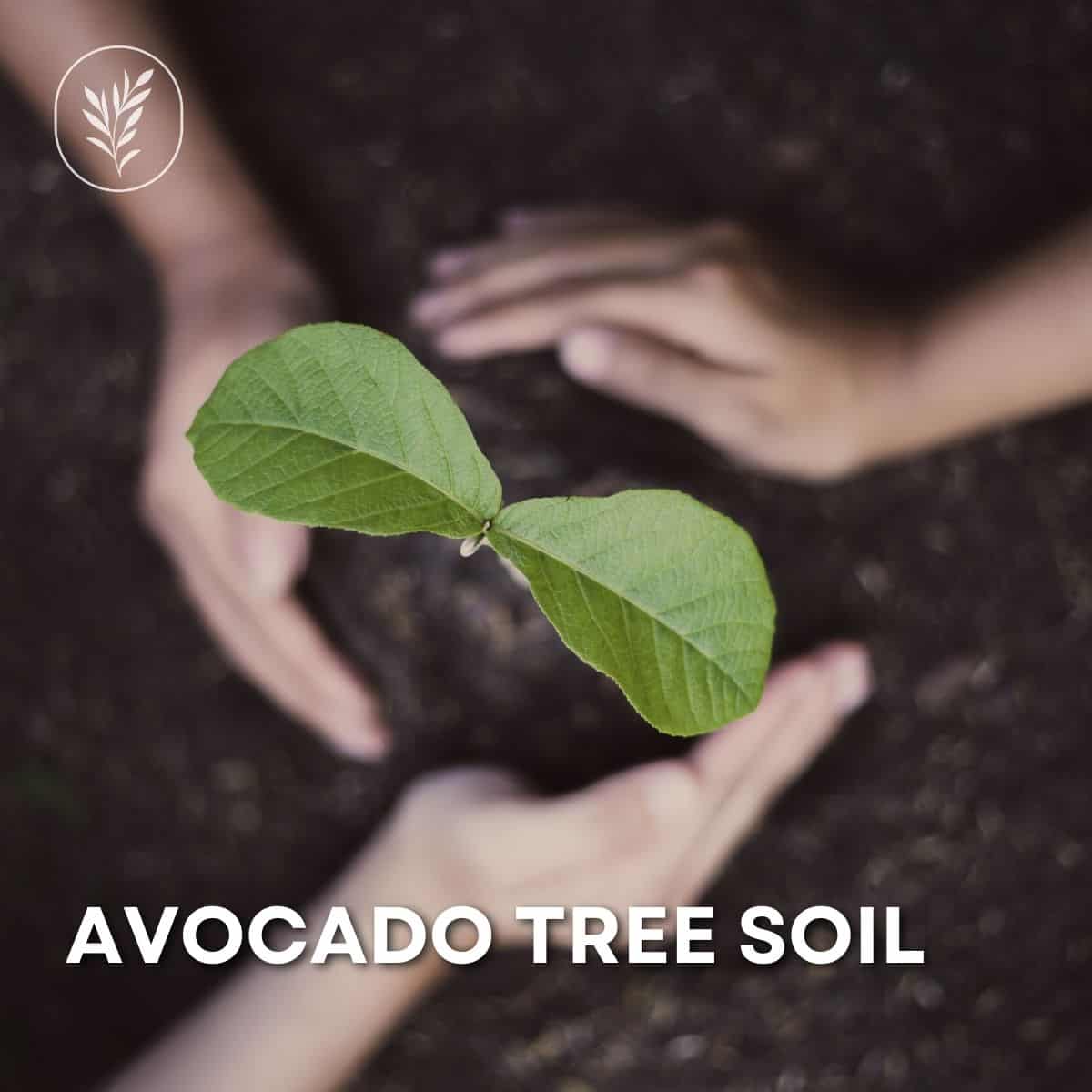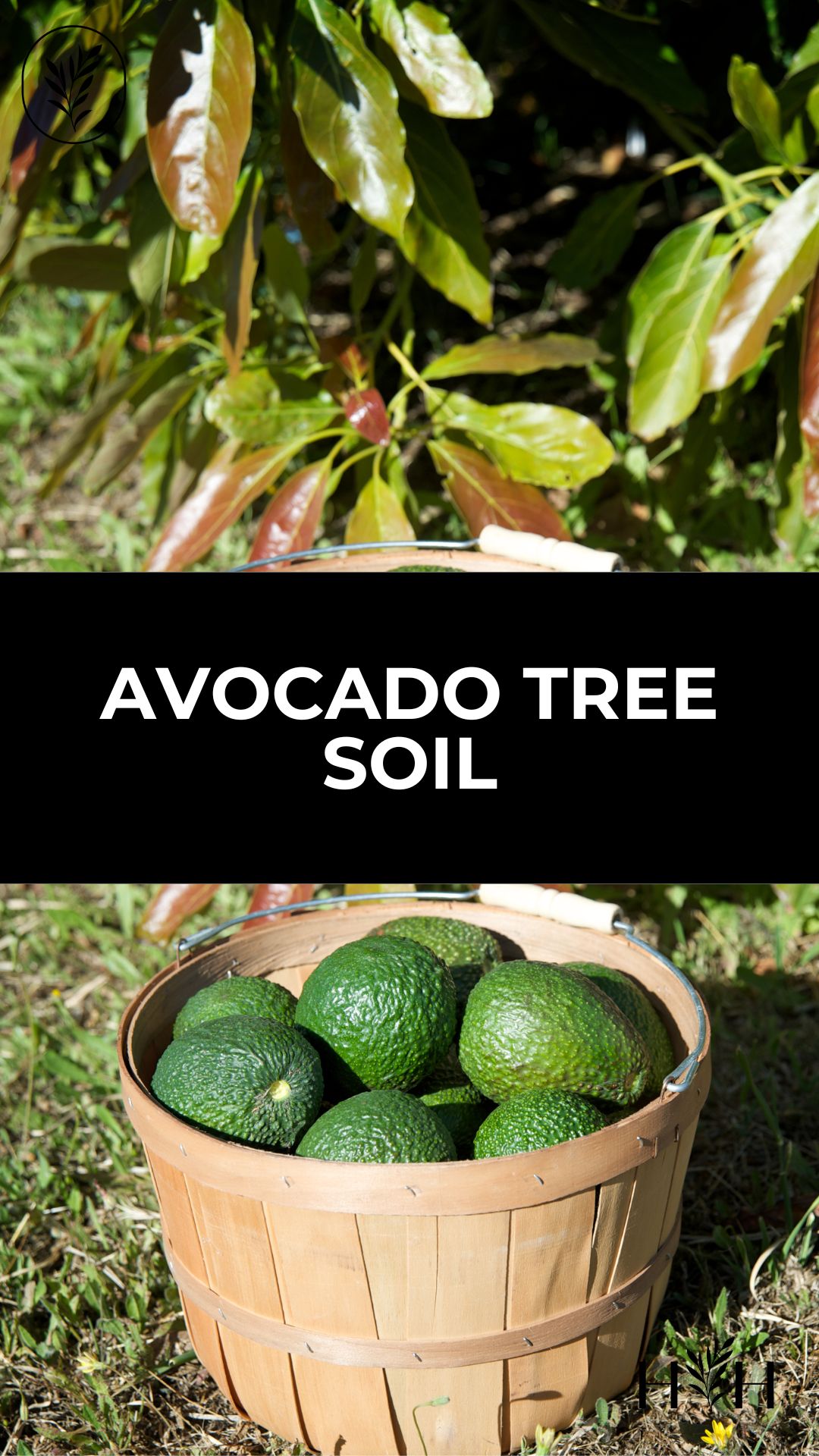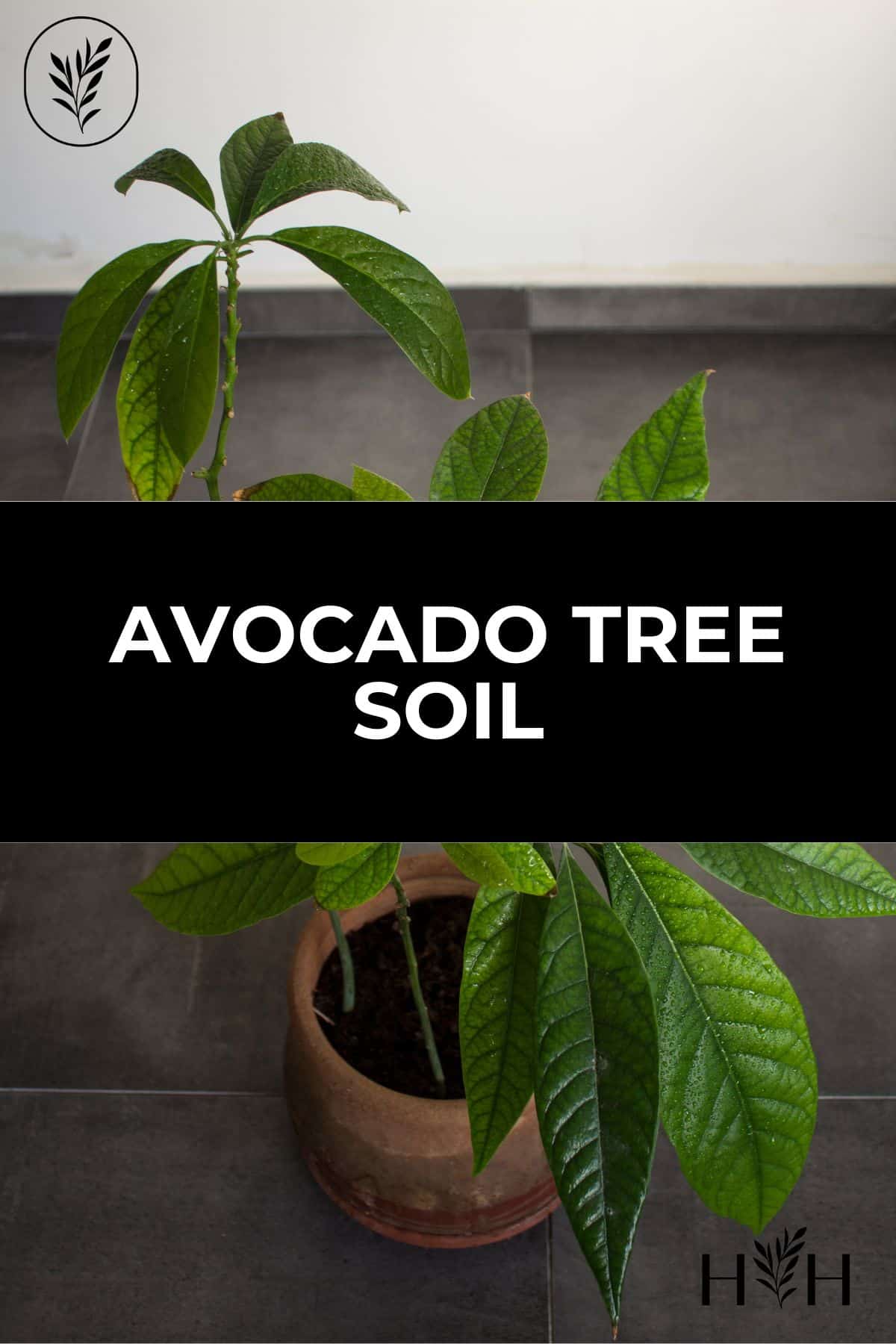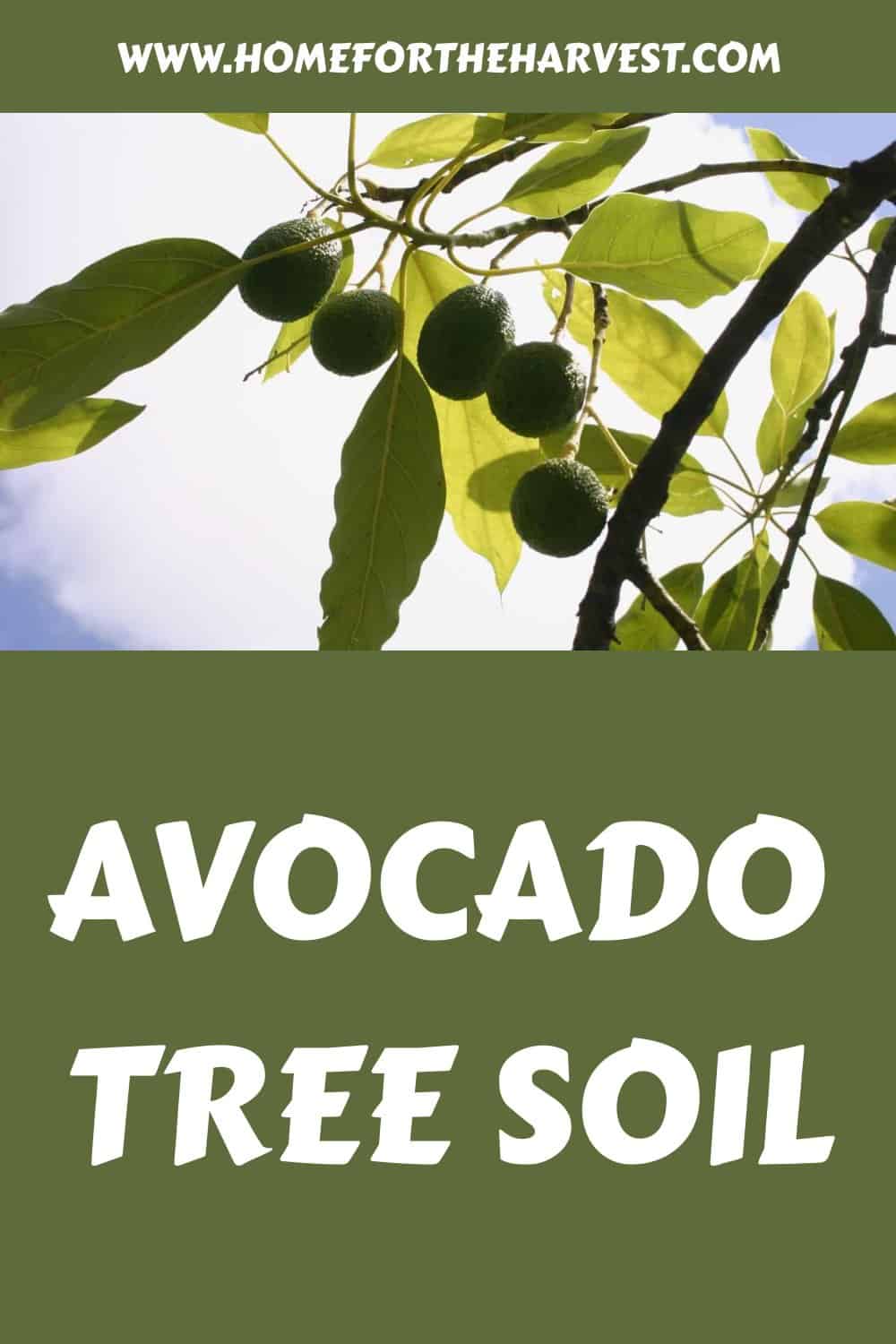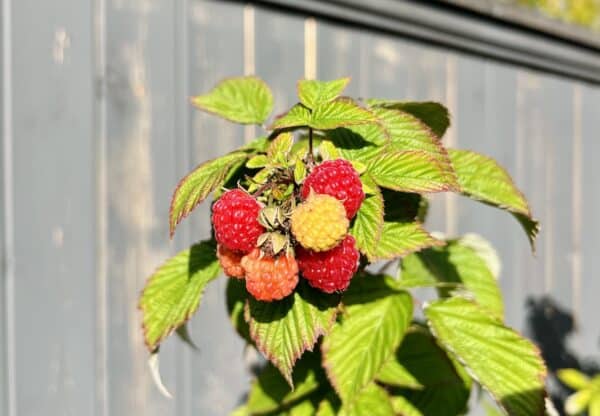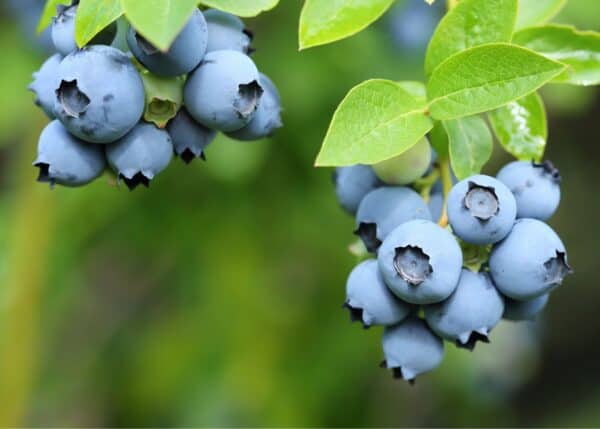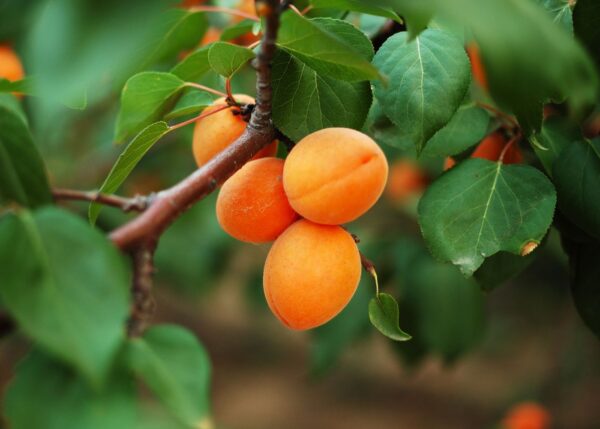Avocado tree soil is an important factor in successfully growing a healthy avocado tree. The key is understanding what type of soil and fertilizers work best for these unique trees, as well as how often they should be watered and mulched. Read on for tips on everything from choosing the right avocado tree soil to finding the perfect fertilizer, watering guidelines, and more.
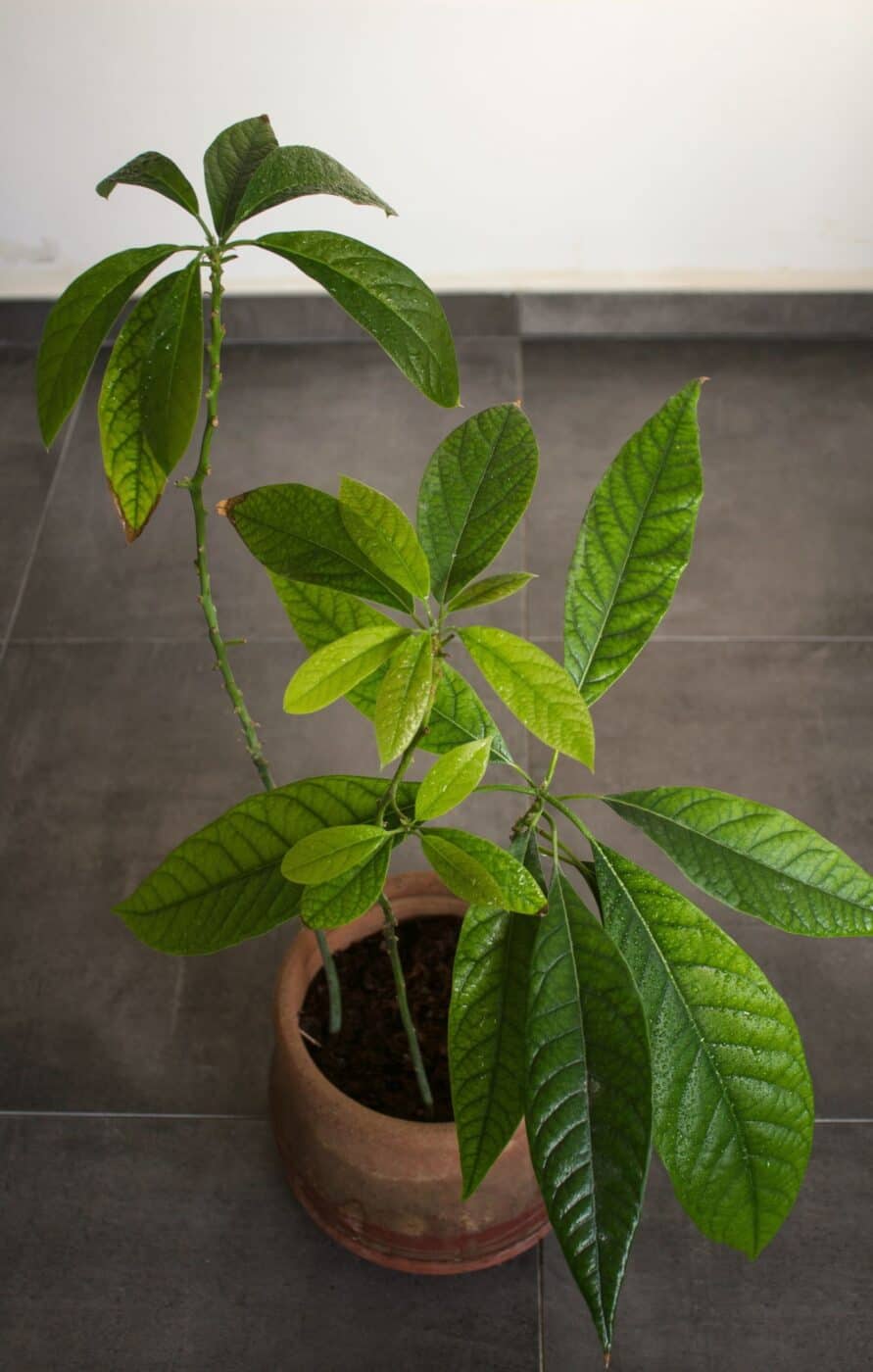
Soil requirements for avocado trees
Avocado trees require well-draining soil with a pH of 6.0 to 7.0 and plenty of organic matter in order to thrive. The best way to ensure your avocado tree has the right environment is by amending the soil with compost or aged manure before planting it. This will improve drainage, and nutrient content, and create an ideal habitat for your avocado tree’s roots.
Organic matter
Organic matter helps retain moisture in the soil while providing essential nutrients like nitrogen, phosphorus, and potassium that are necessary for healthy growth. Adding aged manure or compost can help increase microbial activity which aids in breaking down organic material into usable forms of nutrition for plants. Additionally, adding organic matter can also help reduce compaction from heavy rains or watering cycles so that oxygen is able to reach the roots more easily which helps promote better root development over time.
pH level
Avocados prefer slightly acidic soils between 6-7 on the pH scale but they are quite tolerant of alkaline soils as long as there’s adequate drainage available so their roots don’t become waterlogged or rot away due to lack of air circulation around them. To test your soil’s pH level you can purchase a simple home testing kit at any garden center or an online store – this will give you an accurate reading within minutes. If needed, you can adjust the acidity levels by adding sulfur chips directly into your existing soil mix or use a fertilizer specifically designed for acid-loving plants such as avocados when feeding them throughout their growing season (spring through fall).
Providing the right soil conditions is essential for a healthy avocado tree, so be sure to consider these requirements when planting. However, fertilizers can also play an important role in ensuring your tree thrives; let’s take a look at what types of fertilizers are best for avocados next.
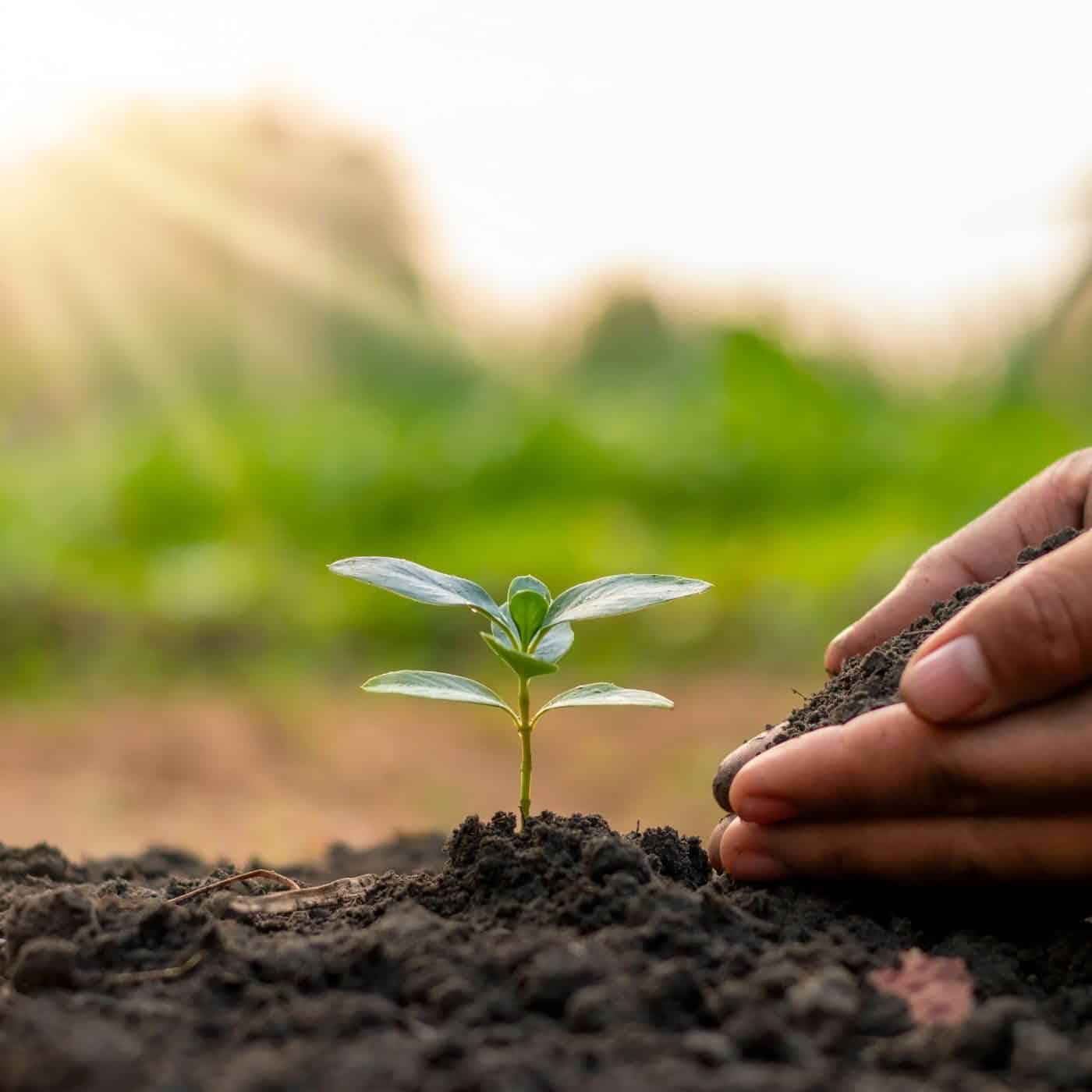
Best fertilizers for avocado trees
In nutrient-deficient soil, avocado trees generally need fertilizers that are high in nitrogen, phosphorus, and potassium to thrive. Slow-release fertilizers provide a steady stream of nutrients over time without burning the roots of the tree. They also help maintain an even pH level for optimal growth.
Organic fertilizers such as composted manure or fish emulsion can be used to give avocado trees the essential nutrients they need. Composted manure is rich in nitrogen and other minerals that will help keep your tree healthy and strong. Fish emulsion is made from ground-up fish parts and provides a great source of nitrogen, phosphorous, potassium, calcium, magnesium, iron, and zinc which are all beneficial for avocados.
It’s important to remember when using any type of fertilizer that you should only apply it once every two months during the growing season (spring through fall). Applying too much can burn the roots or cause nutrient deficiencies so be sure to follow instructions carefully. Also, make sure you water your avocado tree after applying any kind of fertilizer so it has time to absorb into the soil before evaporating away due to sun exposure or windy conditions outside.
Watering avocado trees
Avocado trees need regular watering during the growing season, but it’s important to not overwater them. Too much water can lead to root rot and other problems. The best way to ensure your avocado tree is getting enough water is by checking the soil moisture level with a finger test. Stick your index finger into the soil up to your second knuckle; if it feels dry, then it’s time for deep watering.
The frequency of watering will depend on weather conditions and soil type. In hot climates or sandy soils, you may need to water once or twice a week in order for the roots of your avocado tree to get enough moisture. If you live in an area with cooler temperatures or clay-based soils, then you should only need to water every two weeks or so.
When you determine that it is time for a deep watering session, ensure that all of the roots are receiving an adequate amount of H2O by slowly pouring at least one inch of water around each side of the trunk until runoff is visible from beneath its canopy. This will guarantee that all areas are being watered adequately and evenly throughout its entire root system.
It’s also important not to let any standing puddles form near its base as this could cause fungal issues like root rot over time due to lack of air circulation around its roots when they’re constantly wet—so be sure that any excess runoff drains away quickly after each session. Additionally, try not to use overhead sprinklers as these can encourage mildew growth on leaves which could eventually weaken their health and overall vigor too.
To keep track of how often your avocado tree needs watering, consider setting up an irrigation system such as drip lines or soaker hoses which will help maintain consistent levels without having to manually check each time. Just make sure they don’t become clogged with debris. Finally remember: even though avocados require more frequent hydration than other plants in order to thrive; too much love isn’t always better either.
Properly watering your avocado tree is essential for its growth and health; however, it’s just as important to provide the right kind of mulch to ensure your tree thrives.
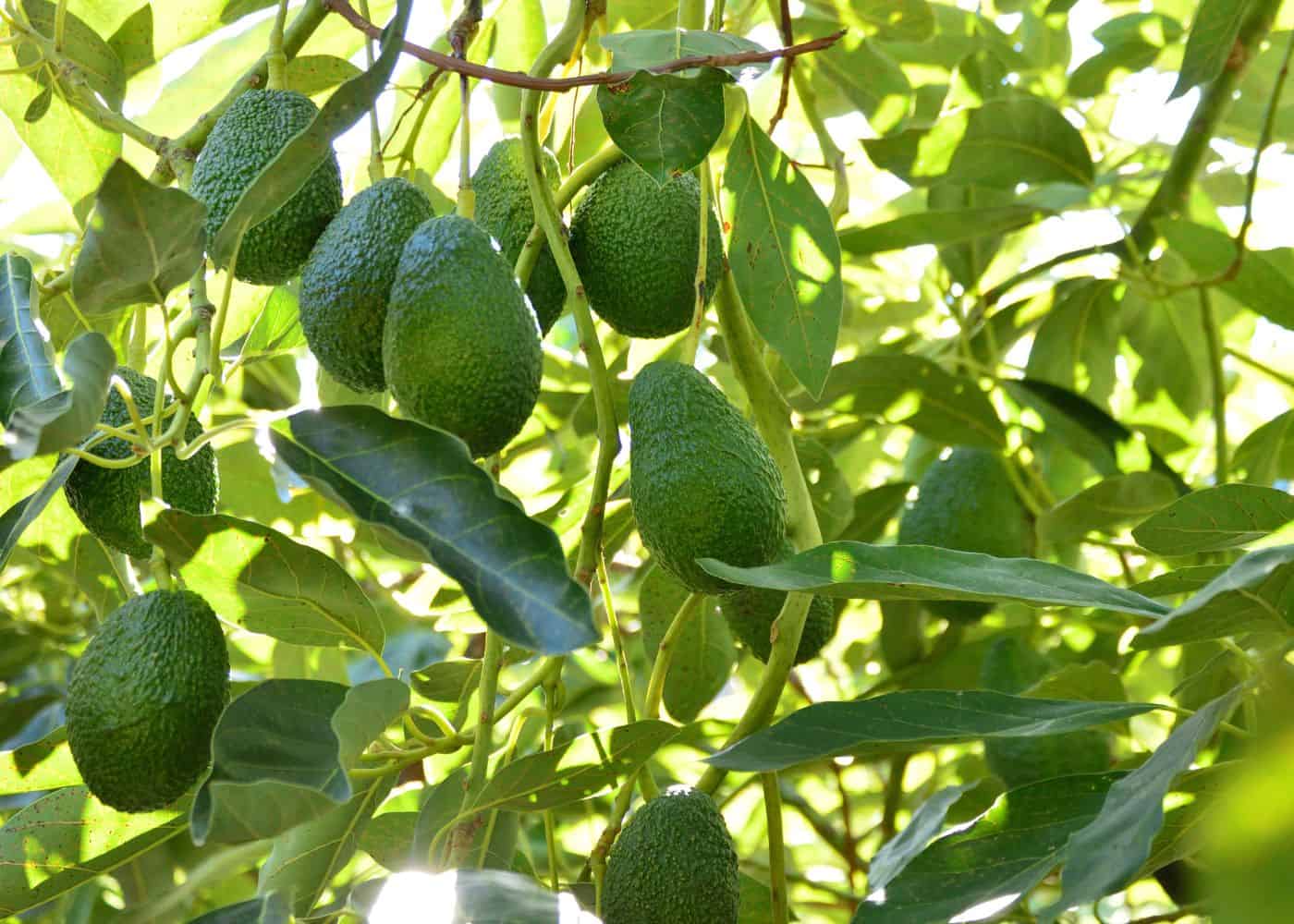
Mulching avocado trees
Mulching is an important part of caring for your avocado tree. It helps to retain moisture in the soil and prevents weeds from taking over the root system. Organic mulches such as wood chips or bark are ideal for use around the base of the tree, helping to keep it cool during the hot summer months.
When selecting a mulch, make sure you choose one that will not decompose quickly. Wood chips and bark are good choices because they last longer than other types of organic mulch. You can also use shredded leaves or straw if you prefer a more natural look in your garden. Make sure to spread the mulch evenly around the base of your avocado tree, keeping it at least two inches away from any branches or stems so that it doesn’t interfere with their growth.
It is essential to water your avocado tree regularly when using mulch; this will help keep the soil moist and prevent rapid evaporation in dry weather. Watering should be done deeply but infrequently, providing each plant with enough moisture so that some runs off into nearby areas without forming pools near its roots which could lead to root rot or fungal diseases such as powdery mildew developing on its leaves and fruit later on.
Mulching also helps protect against temperature fluctuations by insulating both heat and cold air away from sensitive root systems which can cause damage if exposed for extended periods of time – especially during winter months when temperatures drop below freezing point. Additionally, adding a layer of organic material such as composted manure every few years can help replenish essential nutrients back into depleted soils while providing additional protection against extreme temperatures throughout all seasons too.
FAQs about building high-quality avocado tree soil
How do you prepare soil for an avocado tree?
To prepare soil for an avocado tree, it is important to use a well-draining soil mix. Start by digging a hole twice as wide and just as deep as the root ball of your avocado tree.
Amend the soil with compost or aged manure to add organic matter and nutrients. Mix in some sand if you have heavy clay soils to improve drainage. Once planted, water deeply until established and continue regular watering throughout the growing season. Mulch around the base of your tree to help retain moisture and reduce weeds.
Do avocados like wet or dry soil?
Avocados prefer well-draining soil that is kept consistently moist, but not soggy. They thrive in a slightly acidic environment with a pH of 6.0 to 6.5 and require regular fertilization to ensure they receive the necessary nutrients for optimal growth and fruit production.
While avocados can tolerate short periods of dryness, it’s important to keep their soil evenly moist as extended drought can cause leaf drop or even death of the tree. Additionally, avocados are sensitive to cold temperatures and should be protected from frost.
Can I use cactus soil for avocado?
No, cactus soil is not suitable for avocado plants. Avocado trees require well-draining, nutrient-rich soil with a pH of 6 to 6.5. Cactus soil is too dry and lacks the necessary nutrients for an avocado tree to thrive; it also has a much higher pH than what’s ideal for avocados. Additionally, cacti are adapted to arid climates while avocados prefer more humid environments, making cactus soil even less suitable for growing them.
Do avocado trees like acid or alkaline soil?
Avocado trees prefer slightly acidic soil, with a pH of 6.0 to 6.5 being ideal. The tree will tolerate alkaline soils, but may struggle in highly alkaline conditions and become more susceptible to disease and nutrient deficiencies. Regular soil testing is recommended to ensure the correct pH level for optimal growth and health of the avocado tree.
Before you go…
Avocado trees are a great addition to any garden, but they require special care and attention. With the right soil, fertilizers, watering schedule, and mulching techniques you can ensure your avocado tree is healthy and thriving. By following these tips for proper avocado tree soil maintenance you can be sure that your avocado tree will continue to provide delicious fruit for years to come.
Resources
- Tips for growing avocado trees indoors
- Everything you need to know about planting avocado trees
- How to fertilize an avocado tree
- How to prune an avocado tree
- When to transplant an avocado tree
References
- Jukes, J. (2017). How to Grow Your Avocado. CreateSpace Independent Publishing Platform.
- Schaffer, B. A., Wolstenholme, B. N., & Whiley, A. W. (2013). The Avocado: Botany, Production and Uses (pp. 61-63). CABI.
- DREISTADT, S. H. (2007). Integrated Pest Management for Avocados (pp. 6-9). UCANR Publications.
Need more info?
Are you interested in learning more about avocado tree soil? Here are our best articles about it!


